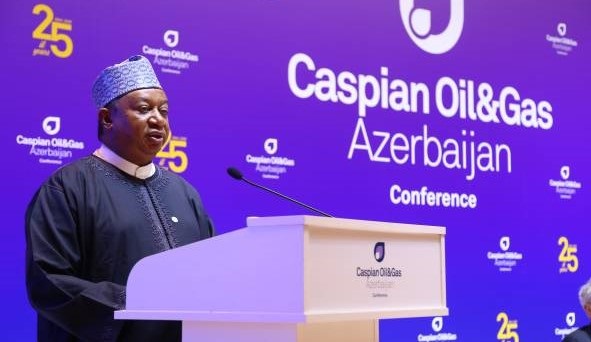The Organisation of the Petroleum Exporting Countries (OPEC) has said that oil and gas remain part of key solutions in combating climate change.

Secretary General of the organisation, Mr Mohammad Barkindo, stated this on Monday, July 8, 2019 in Vienna, Austria while speaking against the backdrop of mass mobilisation of civil society campaigns against the oil industry.
“We believe that oil and gas are part of the solutions to climate change and the solution lies in technology, appropriate policies and corporate decisions.
“A combination of these solution would go a long way in minimising the impact of climate change,” he said.
Barkindo described as “misleading and dangerous” the position taken by civil society groups that the world would continue to depend on oil and gas in the future – especially as the resources would last until 2040 and account for over 50 per cent of the world energy basket.
“In terms of the availability of the resources based underground, we have nearly 1.5 trillion barrels of proven reserves across the world and more than 80 per cent of these reserves are domicile in OPEC member countries including Nigeria.
“And within the context of energy poverty, you know that we have over one billion people in the world without access to electricity, we also have nearly three billion people with no access to clean fuel to cooking.
“The combating of energy problem world over is at the core of development across the world but what we are seeing now is that these campaign against oil will further complicate the energy poverty index and deny the people access to energy,” he stressed.
The OPEC boss, however, noted that focus should be on how to combat greenhouse gas emissions in particular CO2 emissions from fossil fuels, adding that the solution does not lie in combating the use of oil and gas but adopting technology.
While condemning the campaign, he urged stakeholders, government and corporate organisations to rise to the challenge.
OPEC’s efforts to confront climate change include participation in UN negotiation sessions and a deepening and expanding relationship with the United Nations Framework Convention on Climate Change (UNFCCC), among others.
By Habiba Broger
